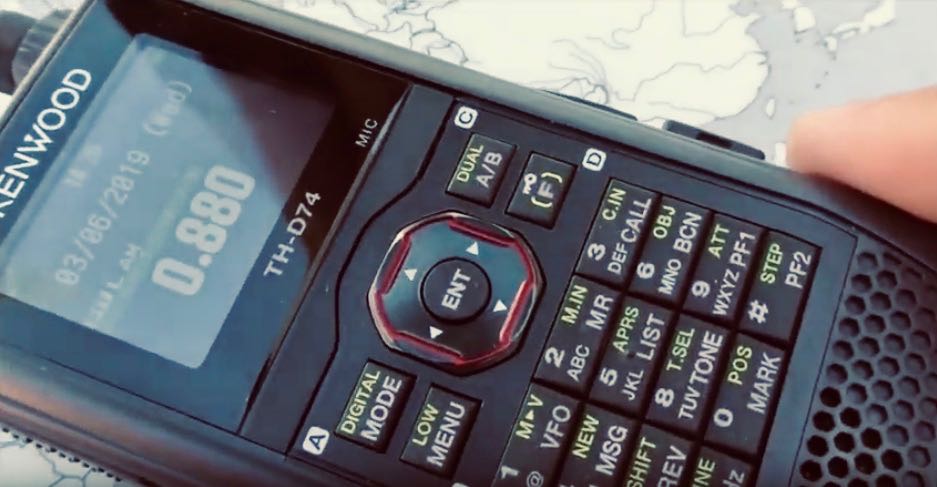Radio Waves: Stories Making Waves in the World of Radio
Because I keep my ear to the waves, as well as receive many tips from others who do the same, I find myself privy to radio-related stories that might interest SWLing Post readers. To that end: Welcome to the SWLing Post’s Radio Waves, a collection of links to interesting stories making waves in the world of radio. Enjoy!
Good news for Pacific regional broadcasting – bad news for locals (Asia Pacific Report)
Good news — an Australian parliamentary review recommends a more “expansive” media presence in the Pacific.
Bad news — little of that expansion envisions a role for island media.
Instead, the committee endorsed a proposal for “consultation” and the establishment of an independent “platform neutral” media corporation, versus the existing “broadcasting” organisation.
That proposal was among several points raised at two public hearings and nine written submissions as part of Australia’s “Pacific Step Up” programme, aimed at countering the growing regional influence of China.
Former long-time Pacific correspondent Sean Dorney last month told the Joint Standing Committee on Foreign Affairs, Defence and Trade that Australia was previously leading regional media spaces.
“But the vacant space that was left there when Australia Network disappeared, as people have said, has really been taken over by China,” he said.
“Throughout my time as the Pacific correspondent for the ABC, I saw this Chinese influence growing everywhere.”
[…]Taking up ten of 176 pages, the report’s media section is nonetheless seen as relatively comprehensive compared with the dismantling of broadcasting capacity in recent years.
This includes the literal dismantling of shortwave equipment in Australia despite wide protest from the Pacific region.
Nearly three years previously, a 2019 Pacific Media Summit heard that discontinuation of the shortwave service would save Australia some $2.8 million in power costs.
A suggestion from a delegate that that amount could be spent on $100,000 for reporters in each of 26 island states and territories was met with silence from ABC representatives at the summit.
However, funding would be dramatically expanded if the government takes up suggestions from the submissions to the joint committee. [Continue reading the full article…]
Pay Your Respects To Radio, The Ancestor Of Podcasting (Rolling Stone)
In the 1890s, Italian inventor Guglielmo Marconi left a lasting legacy when he sent a wireless telegraph message via Morse Code to a recipient. By the turn of the 1900s, Marconi’s innovation would give rise to an entirely new industry, one focused on creating new ways for people to communicate even across vast distances: radio.
Throughout the first half of the 20th century, radio would not only play a major role in the international correspondence of countries fighting in both World Wars but it also became a widely popular phenomenon amongst the general public. By the mid-1920s, there were hundreds of licensed radio stations hosting news broadcasts, comedy shows, dramas, live music, sports programs and other forms of entertainment.
A century later, it’s not hard to spot the parallels between what made radio one of the most popular content mediums in history and the explosive growth of radio’s evolution in podcasting. Though there are some unique differences between the two mediums, I believe podcasters should still pay respect to how the evolution of radio gave rise to the advent of podcasting.
The Rise of Contemporary Audio Entertainment
On October 30, 1938 — the evening before Halloween — Orsen Welles hosted a radio adaptation of H.G. Wells’s science fiction novel, The War of the Worlds, “converting the 40-year-old novel into fake news bulletins describing a Martian invasion of New Jersey.” While Welles and his team reportedly had no intention to deceive listeners into believing the broadcast was in any way real, Welles would later go on to say in a 1960 court disposition about his desire to release the broadcast, “in such a manner that a crisis would actually seem to be happening…and would be broadcast in such a dramatized form as to appear to be a real event taking place at that time, rather than a mere radio play.” [Continue reading at Rolling Stone…]
Why Russian radios in Ukraine are getting spammed with heavy metal (The Economist)
Ukrainians are eavesdropping on the invaders and broadcasting on their frequencies
One of the many surprising failures of the Russian invasion force in Ukraine has been in radio communications. There have been stories of troops resorting to commercial walkie-talkies and Ukrainians intercepting their frequencies. This may not sound as serious as a lack of modern tanks or missiles, but it helps explain why Russian forces seem poorly co-ordinated, are falling victim to ambushes and have lost so many troops, reportedly including seven generals. What is going wrong with Russian radios? Continue reading


